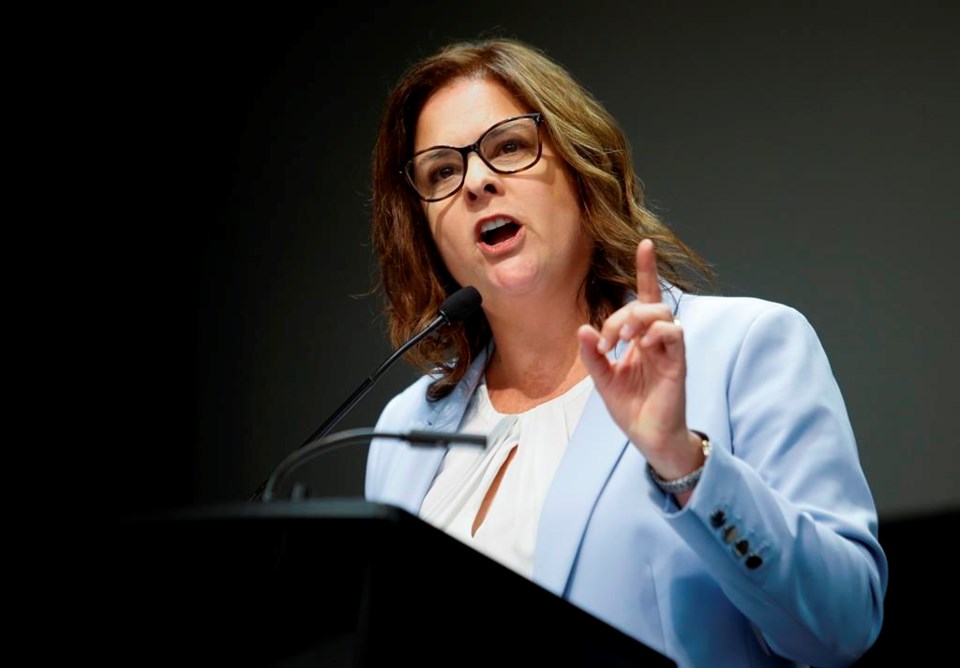WINNIPEG — The union that represents Manitoba government workers said Wednesday its members are being hurt by low staffing levels, tight budgets and the privatization of some services.
"Our people are suffering. The people look around them and there's desks empty everywhere," Kyle Ross, president of the Manitoba Government and General Employees Union, told reporters.
The union released a 28-page report, comprised in part of statistics and surveys released earlier by the province's civil service commission. The report said the number of civil servants in the workforce has dropped by 2,300 — or about 15 per cent — since 2016.
That was the year the Progressive Conservatives swept the NDP from office and promised to reduce the deficit. In the years that followed, the Tories moved to freeze public-sector wages and leave some job vacancies unfilled.
Another election is set for Oct. 3. Ross said the union wants to raise awareness of the problems faced by government workers, and seek higher wages and manageable workloads, without taking partisan sides. The union has registered as a third-party advertiser with Elections Manitoba.
"We've been beating the drum on this for a long time and we're going to continue to do it," Ross said.
The union's report says front-line services have been affected by staffing shortages.
A lack of qualified public health inspectors has led to less frequent inspections of food establishments and public facilities, the report states. The document also points to an earlier finding from the auditor general's office that said there was a declining ratio of water safety officers to the number of water systems that require inspection.
The report also mentions the privatization of services such as the Lifeflight air-ambulance program.
Premier Heather Stefanson, who took over the Tory leadership after former premier Brian Pallister resigned in 2021, has loosened the government's purse strings and has promised a more conciliatory approach to issues. The latest annual report from the civil service commission says the number of civil servants rose slightly — by almost 200 — in the fiscal year that ended in March 2022.
Government Services Minister James Teitsma said the province is taking steps to address the union's issues.
"Our government is implementing recruitment strategies to address employment needs, focusing on key changes to advance innovation and the modernization of Manitoba’s public service," read a written statement from Teitsma's office Wednesday evening.
"Some organizational adjustments have been required, and efforts have been made to redeploy affected employees to other priority areas where possible. We are also filling priority vacancies to support continued direct service delivery, a data-driven workforce, succession planning and targeted outreach."
The statement said that while civil service numbers are down, the number of workers in the broader public sector, which includes health care, education and other services, is up.
"Overall, the number of public-sector employees in Manitoba last month was 180,200, while in 2015 it was 163,300. The size of Manitoba’s core government has decreased since 2016, though this has primarily been due to natural attrition, fluctuations in seasonal staffing and the movement of approximately 900 employees from Manitoba’s public service to Shared Health (a central planning agency) last year."
This report by The Canadian Press was first published June 14, 2023
Steve Lambert, The Canadian Press


